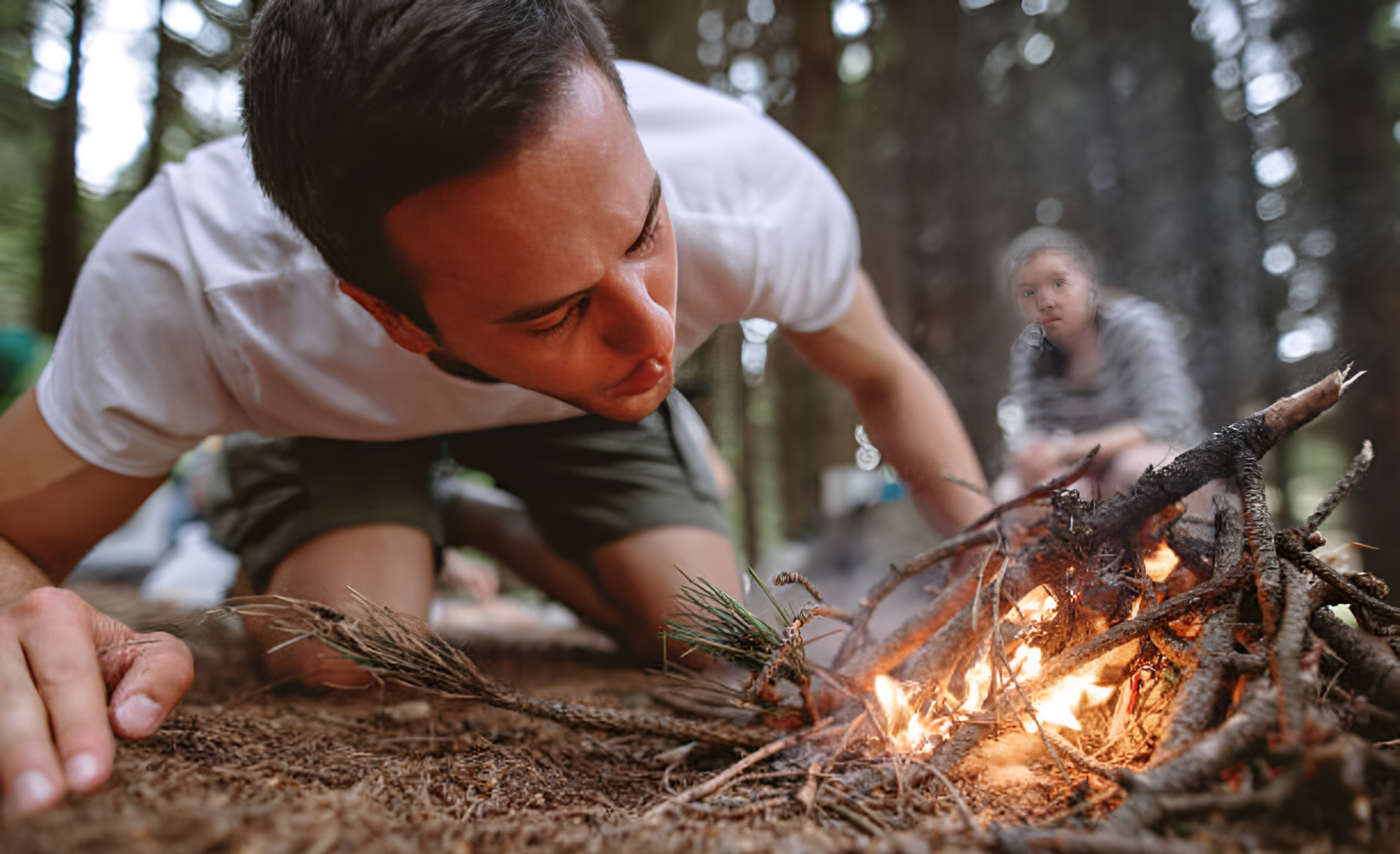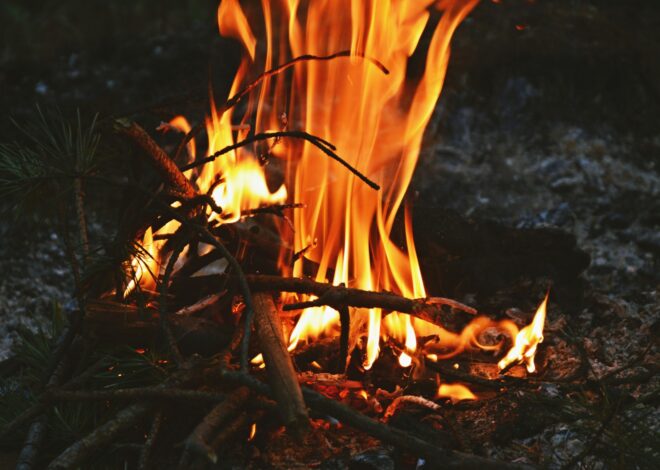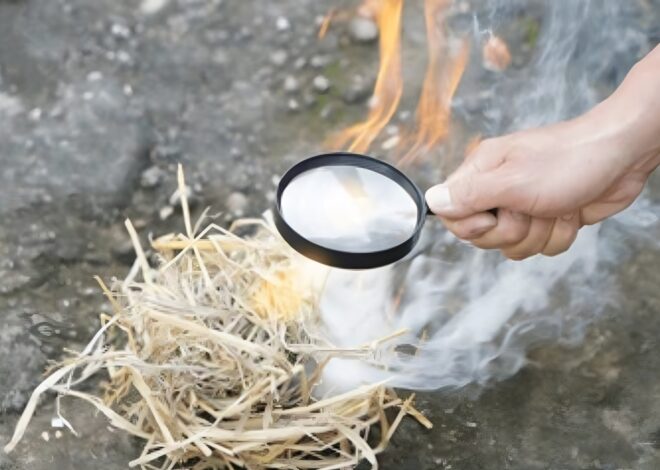
Top 10 Survival Skills
Welcome to our top 10 survival skills guide. When it comes to the great outdoors, it’s not just about enjoying nature—it’s also about surviving in it. Whether you’re an avid adventurer or a casual weekend hiker, knowing essential survival skills can mean the difference between thriving and merely enduring.
These skills aren’t just for extreme situations; they can come in handy during unexpected challenges like getting lost on a trail or facing sudden weather changes. Imagine finding yourself stranded with limited resources. What would you do?
Understanding how to navigate your surroundings, locate clean water, and build shelter can empower you during crisis moments. But what exactly are the top survival skills every person should know? Let’s explore ten crucial abilities that could help keep you safe and secure when the going gets tough. Your adventure into self-reliance begins now!
Essential Gear and Tools
When venturing into the wild, having the right gear can mean the difference between survival and distress. A reliable knife is a must-have tool. It serves numerous purposes, from food preparation to shelter construction. A sturdy backpack allows for easy transport of essential supplies.
Choose one that fits comfortably and offers enough space for your necessities. In addition, a first aid kit should always be part of your equipment. Accidents happen unexpectedly; being prepared can save lives. Fire-starting tools such as waterproof matches or flint sparkers are critical for warmth and cooking.
Don’t forget about water purification tablets or filters—they ensure you have safe drinking water in any situation. Consider adding multi-tools that combine various functions in one compact design. Versatility is key when resources are limited. Equip yourself wisely before setting out on your adventure.
Top 10 Survival Skills:
Survival skills are essential in today’s unpredictable world. Mastering them can mean the difference between life and death ☠.
#1. Developing a Survival Plan
A well-crafted survival plan is your blueprint for navigating tough situations. It gives you direction and purpose when chaos strikes.
Start by assessing potential risks in your area, such as natural disasters or wildlife encounters. Identify safe zones and resource-rich locations nearby. This knowledge can save time and energy during a crisis.
Next, outline specific steps to take in various scenarios. Whether you’re facing a sudden storm or getting lost while hiking, having a clear action plan minimizes panic.
Involve family or friends in this process; teamwork strengthens preparedness. Discuss roles, establish communication methods, and practice drills together.
Regularly updating your plan keeps it relevant as circumstances change—new threats may emerge over time. Always be ready to adapt based on evolving conditions or experiences from previous outings.
Embrace the mindset of constant improvement with your survival plan; it’s an essential foundation for any successful adventure.
#2. Physical Fitness and Endurance
Physical fitness and endurance are crucial survival skills. When faced with unexpected situations, your body needs to be ready to respond.
Endurance helps you maintain energy over long periods. Whether hiking through rugged terrain or building a shelter, stamina is key. Regular physical activity boosts your overall strength and flexibility.
Strength training enhances muscle power for tasks like lifting heavy objects or defending yourself if necessary. Incorporating cardio workouts improves heart health and lung capacity, allowing you to move quickly when needed.
Additionally, practicing outdoor activities can simulate real-life scenarios. Hiking, running trails, or even climbing can hone both your physical capabilities and mental toughness.
It’s not just about being fit; it’s also about pushing beyond limitations when the going gets tough. Embrace challenges during training sessions to build resilience that will serve you well in dire situations.
#3. Navigation and Orientation
Navigation and orientation are crucial survival skills that can make a significant difference in emergency situations. Knowing how to find your way using natural landmarks, the sun, or even stars can lead you to safety when technology fails.
Understanding basic compass reading is essential. A compass helps establish direction, enabling you to chart a course toward your destination. Practice this skill regularly to boost confidence.
Map reading complements compass use. Familiarize yourself with topographic maps and symbols before heading into unfamiliar territory. This knowledge provides context about elevation changes and terrain features.
Using natural cues enhances navigation as well. Observing the position of the sun during the day or recognizing moss growth on trees can guide your path effectively.
Always remain aware of your surroundings for better decision-making while navigating unknown areas. Building these skills will empower you and increase your chances of survival in challenging conditions.
#4. Shelter Building and Fire Making
Creating a shelter can mean the difference between comfort and exposure. Whether you’re in the woods or on a deserted island, knowing how to build one is crucial. Look for natural materials like branches, leaves, and stones. A sturdy frame will offer support while insulation keeps you warm.
Fire making complements your shelter-building skills. It provides warmth, protection from wildlife, and a way to cook food. Start by gathering tinder—dry leaves or small twigs work well—and find dry wood of different sizes for fuel.
Use methods such as friction or flint-and-steel to ignite your fire source. Once it’s going, keep it contained using rocks if needed. Always remember that fire management is key; never leave it unattended or let it get too large.
Together, these skills foster safety and enhance your survival experience in any environment.
#5. Identifying and Finding Water Sources
Water is essential for survival, yet it can be elusive in the wild. Knowing how to identify and find water sources is a critical skill.
Look for natural signs that indicate nearby water. Animal tracks often lead to drinking spots, while lush vegetation can signal moisture beneath the surface. Following these clues can save time and effort.
In dry environments, consider digging at low points or riverbeds where water might pool underground. If you spot any plant with thick leaves or stems, these often hold precious moisture.
Rainwater collection is another smart tactic. Use tarps or containers to catch rain during storms—freshwater gathered this way is pure and life-sustaining.
Always remember to purify any collected water before consumption. Boiling it or using purification tablets ensures safety from harmful pathogens lurking within nature’s bounty.
#6. Foraging for Food
Foraging for food connects you with nature. It’s an ancient skill that can be invaluable in survival situations. Knowing which plants are edible is crucial.
Start by learning about local flora before heading out. Some common wild edibles include dandelion greens, clover flowers, and berries like blackberries or raspberries. Always assess the environment—avoid areas that may have been treated with chemicals.
When foraging, use your senses: touch, smell, and taste (with caution). This can help identify safe options while avoiding toxic lookalikes. Remember to harvest sustainably; only take what you need and leave enough for future growth.
Consider keeping a field guide handy to bolster your knowledge on plant identification. Engaging in this practice daily builds confidence and enhances your overall skill set when it comes to surviving off the land.
#7. First Aid and Medical Knowledge
First aid and medical knowledge are vital survival skills that can mean the difference between life and death in an emergency. Understanding how to treat injuries, illnesses, or trauma is essential for anyone venturing into the wild.
Start by familiarizing yourself with basic first aid techniques. Learn to clean wounds properly, bandage them securely, and recognize signs of infection. Practice CPR, as it can save lives during cardiac emergencies.
Knowing how to assess a situation quickly will help you determine if further medical assistance is needed. Carrying a well-stocked first-aid kit ensures you’re prepared for common injuries like cuts, sprains, or bites.
Additionally, understanding basic anatomy and physiology helps when dealing with more serious conditions. This knowledge empowers you to act confidently under pressure—an invaluable trait in any survival scenario. Embrace ongoing education through courses or workshops; staying informed enhances your ability to respond effectively when it counts most.
#8. Self-Defense and Weapon Use
Self-defense is an essential survival skill that goes beyond physical combat. It’s about awareness, prevention, and knowing how to react in dangerous situations.
Understanding your surroundings can often help you avoid conflict altogether. Stay alert and trust your instincts; they are powerful tools for keeping yourself safe.
When it comes to weapon use, knowledge trumps brute force. Familiarize yourself with different types of weapons—ranging from knives to firearms—and learn the laws governing their use in your area.
Practice handling these tools safely and effectively. This doesn’t mean becoming a master marksman overnight but rather understanding basic techniques for self-defense scenarios.
Remember that self-defense isn’t just about fighting back; it’s also about de-escalation tactics. Developing verbal skills can diffuse tense situations before they escalate into violence.
Training regularly ensures you’re prepared when confronted with danger while enhancing confidence in your ability to protect yourself.
#9. Mental Resilience and Adaptability
Mental resilience is the backbone of survival. It shapes how we respond to challenges and stressors in life-or-death situations. Developing a strong mindset can mean the difference between panic and clarity.
Adaptability goes hand in hand with resilience. The ability to adjust your strategies based on changing circumstances is crucial when facing unpredictable environments or emergencies. Embracing change can help you pivot quickly, whether it’s altering your route during navigation or finding alternative food sources.
Practicing mindfulness techniques, such as meditation or deep breathing, helps build mental strength. These exercises enhance focus and calmness under pressure.
Regularly challenging yourself mentally prepares you for unexpected scenarios. Engage with puzzles, try new skills, or immerse yourself in unfamiliar tasks. Each effort strengthens your capacity to handle adversity effectively while maintaining a clear head amidst chaos.
#10. Communication and Teamwork
Effective communication can make or break a survival situation. When people work together, they tap into collective knowledge and skills. This synergy often leads to better decision-making in high-pressure environments.
Clear instructions are vital when tasks need to be completed quickly. Whether it’s building a shelter or gathering supplies, sharing information effectively helps everyone stay on the same page. A well-coordinated team can adapt more rapidly to changing circumstances.
Listening is equally important. Understanding each member’s strengths allows for better role assignments and improves overall efficiency. Trust also plays a crucial role; team members must feel safe voicing opinions or concerns without fear of judgment.
Maintaining morale is essential during challenging times. Encouraging words and supportive actions foster resilience within the group, creating an environment where individuals thrive even in adversity.
Continual Practice and Improvement
Mastering survival skills is an ongoing journey. It’s not enough to learn them once and expect to excel when the time comes. Regular practice ensures these vital abilities become second nature. Consider setting aside time each month for skill drills.
Whether you’re building shelters, navigating using a map and compass, or honing your fire-starting techniques, repetition strengthens muscle memory. Join local survival groups or online forums where you can exchange tips and experiences with fellow enthusiasts.
Engaging with others in this community provides fresh perspectives and additional resources that can enhance your learning process. Keep challenging yourself with new scenarios. Each experience teaches something unique, allowing you to adapt those skills further.
Embrace mistakes along the way; they are valuable lessons in resilience and innovation. Remember that improvement isn’t just about physical skills; mindset plays a crucial role too. Stay open-minded and curious as you continue on your path toward becoming adept at surviving in any situation.
Conclusion: Learning How to Survive
Learning essential survival skills is more than just a hobby; it’s an investment in your safety and well-being. Each skill you acquire can make the difference between thriving and merely surviving in challenging situations. The world can be unpredictable, and having a solid foundation of knowledge prepares you for whatever comes your way.
Understanding how to develop a survival plan ensures that you’re ready when emergencies strike. Physical fitness enhances not only your endurance but also boosts your confidence in tackling physical challenges. Navigation and orientation help you stay on course, while shelter building and fire making provide warmth and security.
Water sources are vital for life, so knowing how to find them is crucial. Foraging for food expands your resources beyond what’s readily available, ensuring sustenance during tough times. First aid knowledge equips you to handle injuries effectively, giving peace of mind when accidents happen.
Self-defense skills protect against threats, enhancing your overall safety. Mental resilience allows you to adapt under pressure, fostering creativity in problem-solving scenarios. Communication and teamwork ensure that if you’re with others, everyone works together towards common goals.
These top 10 survival skills form the backbone of preparedness strategies many enthusiasts prioritize today. Regular practice sharpens these abilities further—remembering that learning never truly ends fosters growth as both an individual and survivor.
Embrace the journey of acquiring these skills while remaining open-minded about continual improvement; you’ll cultivate confidence for any situation life throws at you.



